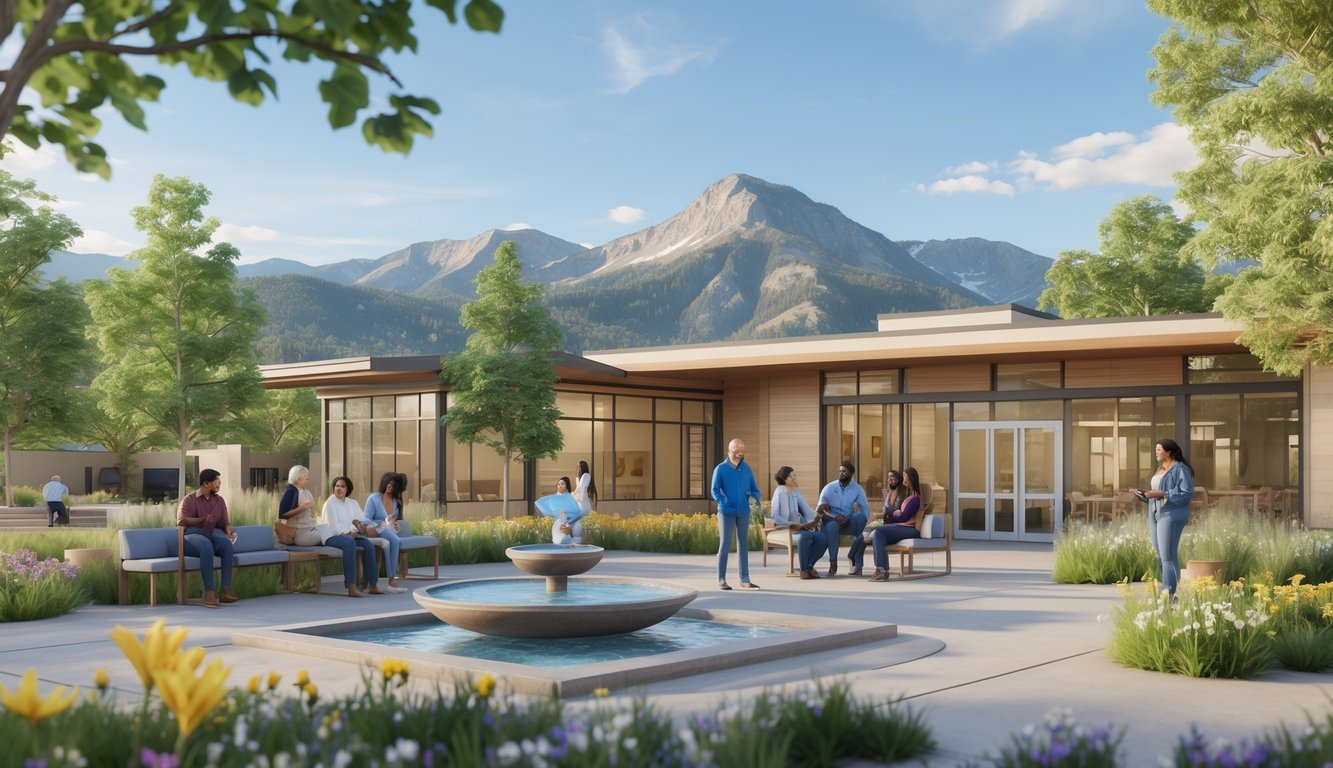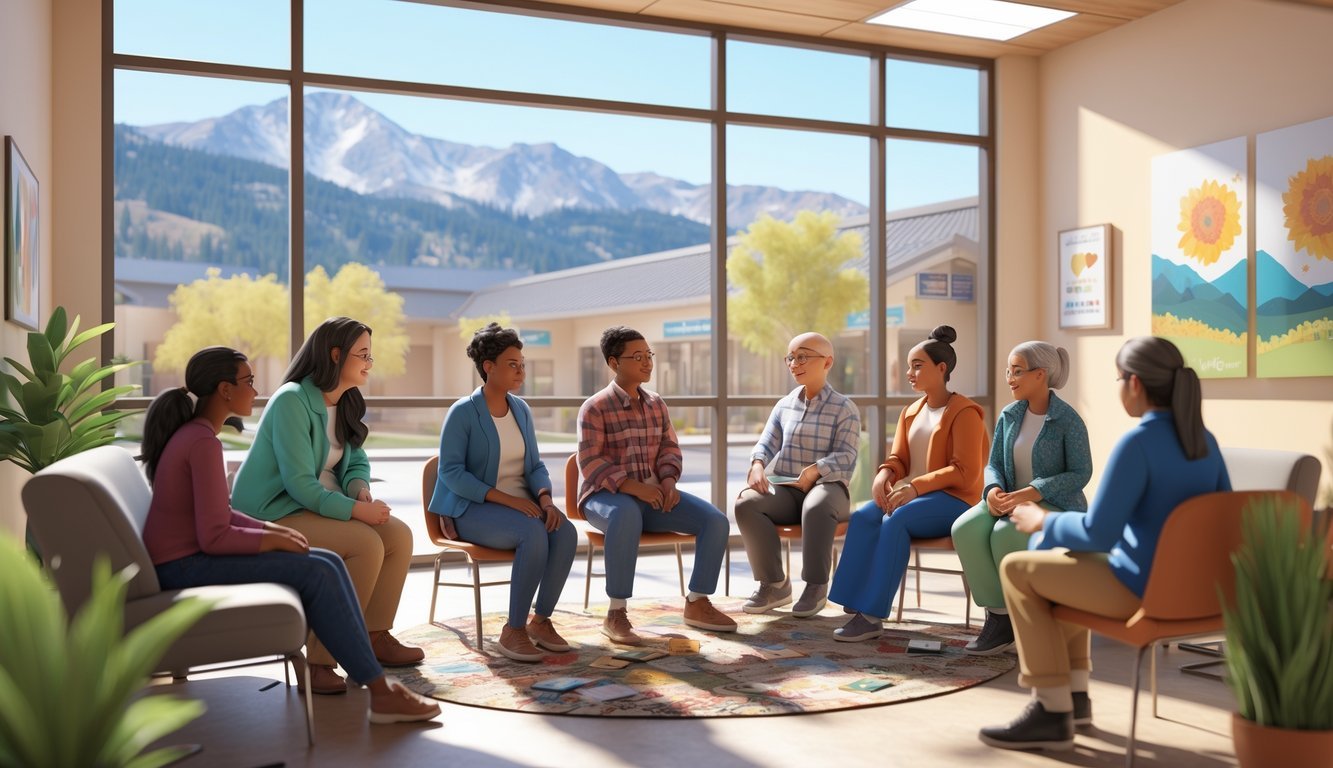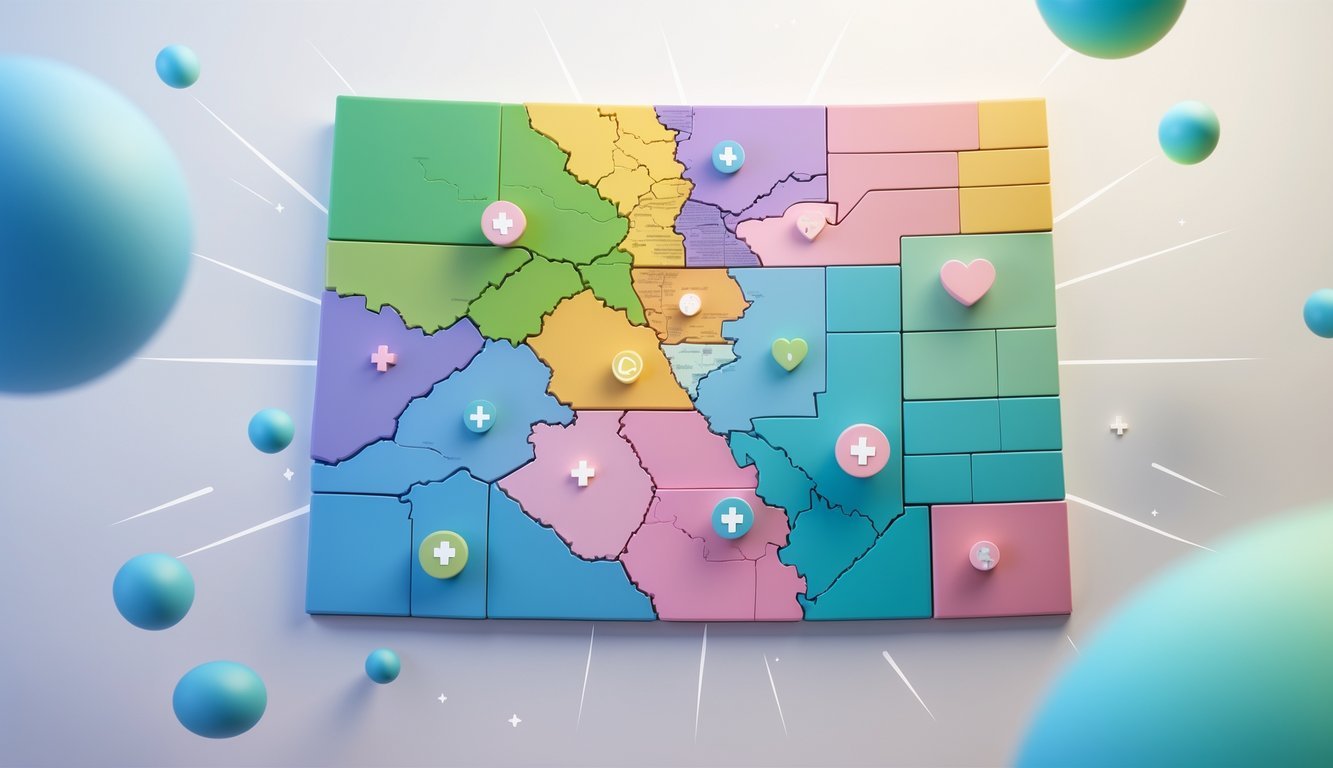PsychNewsDaily Publishers
100 Summit Drive
Burlington, MA, 01803
Telephone: (320) 349-2484
PsychNewsDaily Publishers
100 Summit Drive
Burlington, MA, 01803
Telephone: (320) 349-2484
Colorado offers accessible mental health support through various programs, including crisis services, therapy for youth, community centers, and nonprofit organizations, regardless of insurance or income.

Looking for mental health support in Colorado shouldn’t empty your wallet. The state actually offers a lot of options to help you get care without big expenses.
You’ll find everything from totally free counseling to low-cost therapy through different programs and organizations.
Colorado offers free and low-cost mental health services through state programs, community health centers, nonprofit groups, and university clinics. You can get individual therapy, group counseling, crisis support, and programs for different ages and backgrounds.
Whether you live in Denver, Colorado Springs, or a small mountain town, you can find mental health resources nearby. State-funded programs connect you with care navigators, and university clinics offer affordable therapy.
Colorado really has made mental health care easier to reach.

You’ll find several no-cost mental health resources open to everyone in Colorado. These include 24/7 crisis support, a suicide prevention hotline, and specialized therapy for young people.
Colorado Crisis Services gives you immediate mental health help any time, day or night. You can reach out in different ways and never pay a thing.
Available Services:
Trained mental health professionals come to you during emergencies. These mobile teams assess your situation and connect you to ongoing care.
You don’t need insurance or ID to use these services. Crisis counselors handle mental health emergencies, substance use crises, and suicidal thoughts.
Walk-in centers operate in several Colorado cities. The staff gives you support and helps with safety planning when you visit.
The 988 Suicide & Crisis Lifeline connects you straight to Colorado-based crisis counselors. This three-digit number replaced the old 10-digit hotline.
When you call 988 from Colorado, local counselors answer. They know about state resources and can point you to nearby help.
Features of 988:
Anyone struggling with suicidal thoughts, mental health crises, or emotional distress can use this line. Family and friends can also call for advice on helping someone else.
I Matter gives Colorado youth ages 12-24 up to 12 free therapy sessions each year. The program cuts out barriers that often stop young people from getting mental health care.
Licensed therapists treat depression, anxiety, trauma, and more.
Program Benefits:
The program partners with community mental health centers statewide. You can sign up yourself or get referred by a school, doctor, or adult.
Sessions happen in youth-friendly spaces. Therapists use proven treatments designed for teens and young adults.

Community mental health centers act as local spots for affordable care. Nonprofit groups and volunteer programs help fill in the gaps. Peer support groups let people connect and share experiences, adding to professional treatment.
Community mental health centers offer affordable services in neighborhoods all over Colorado. They use sliding scale fees based on your income and accept most insurance.
You’ll find individual therapy, group counseling, and psychiatric care at these centers. Many also provide crisis help and emergency support.
Licensed therapists, social workers, and psychiatrists work at most centers. Some focus on specific groups like kids, veterans, or people with serious mental illness.
Common Services Available:
Most centers stick to regular business hours. Some offer evening or weekend times to fit your schedule.
Nonprofit organizations across Colorado provide free mental health programs and support. Many focus on certain conditions or serve specific communities.
You’ll find educational workshops on mental health topics. They teach coping skills, stress management, and wellness for free.
Volunteer programs connect trained community members with people who need support. Volunteers learn basic counseling skills and crisis response.
Types of Nonprofit Services:
Some groups offer special programs for teens, seniors, or certain cultural backgrounds. Services may be available in several languages.
Support groups bring together people facing similar mental health struggles. These groups meet regularly and offer a safe place to share and learn.
Peer counseling pairs you with someone who’s been through similar experiences. These counselors aren’t professionals, but they’ve got personal understanding and solid training.
Many groups focus on things like depression, anxiety, or bipolar disorder. Others help people dealing with grief, divorce, or trauma.
Benefits of Peer Support:
You can find groups through free and low-cost behavioral health services. Most groups meet weekly or monthly at community centers, libraries, or clinics.

Colorado’s mental health resources depend on where you live. Urban areas have more providers and clinics, while rural communities face their own challenges but also have special programs.
Denver, Colorado Springs, and Fort Collins have the highest number of mental health providers in the state. You’ll find private practices, community centers, and hospital programs.
The OwnPath Care Directory and Colorado LIFTS let you search for services by zip code. Care navigators are around Monday through Friday, 8 a.m. to 5 p.m., to help you find local options.
Community colleges in big cities also offer mental health support. Red Rocks Community College gives free virtual mental health services to students through the TimelyCare app.
Urban advantages:
Rural Colorado struggles with mental health challenges. Suicide rates in rural areas are much higher than in cities.
Las Animas and Huerfano Counties provide free counseling for all ages. Licensed professionals offer these services at no cost.
Telehealth lets rural residents get care without traveling far. Many providers now do video or phone sessions.
Rural resources:
The state tries to make sure where you live doesn’t block you from getting help.
Getting mental health help in Colorado starts with contacting the right agency and knowing what info you’ll need. The state supports people no matter their insurance or income.
The Colorado Behavioral Health Administration partners with providers to get you mental health services, even if money’s tight. You can call their main office during business hours.
The OwnPath Care Directory and Colorado LIFTS connect you with care navigators. They give real-time support and make getting care easier.
Care navigator hours:
Local health departments also offer direct services. The Las Animas-Huerfano Mental Health Program provides free counseling for people in those counties.
You can use these services without insurance or even if you have limited coverage. Anyone in Colorado can access these programs no matter their insurance status.
Most programs just ask for some basics:
Some places might ask about income to see if you qualify for free services. Usually, you don’t need a lot of paperwork at first.
Care navigators help you figure out what documents you might need for certain programs. They’ll walk you through it, step by step.
The state system tries to make sure nobody gets left out because of money, language, or location. You can check out more details here. This includes folks who speak languages other than English.
Care navigators will help you connect with services that fit your language needs. A lot of programs offer interpretation during your appointments.
You can get services anywhere in Colorado, even if you live in a rural area. The zip code-based system lets you find providers nearby.
If you have a disability or need special accommodations, care navigators work with you to find the right support.